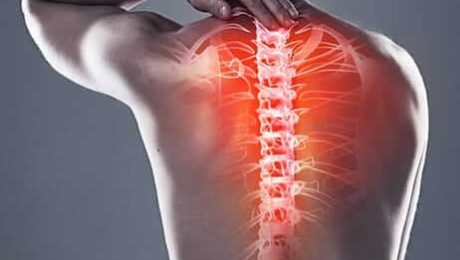The vertebral column in your spine consists of 33 vertebrae. These vertebrae support your body, correct your posture, and protect the spinal cord. Spondylolisthesis, which is Latin for slipped vertebral body (spinal bone) is a commonly spine condition that causes excruciating pain and limits your range of motion.
When your spine degenerates, it becomes weakened and can possibly dislocate. Spondylolisthesis, is also caused by traumatic injury and excessive strain on your spine. The stress can cause your vertebrae to slip and compress nearby nerves, resulting in sudden, radiating pain. Knowing the severity helps doctors accurately diagnose your condition and provide effective treatment.
There are six major types of spondylolisthesis:
Type I—Dysplastic Spondylolisthesis
Dysplastic spondylolisthesis, the first type we’ll talk about, is caused by a defect that’s present at birth which can cause a slipped vertebra at some point during the your lifetime. About 14 to 21 percent of spondylolisthesis cases are caused by congenital mutations.
Symptoms may not be apparent for years and the condition can go largely undetected for most of your life. This type of spondylolisthesis can weaken your facet joints during your early developmental years and can, eventually, be triggered by a traumatic or degenerative factor.
Type II—Isthmic Spondylolisthesis
The second type is called isthmic spondylolisthesis, a common variant caused by a stress fracture in the pars interarticularis—a bone segment that connects the facet joints. Isthmic spondylolisthesis can be caused by microfractures or complete fractures that cause the vertebrae to slip forward.
The symptoms of this condition may not be noticeable in the 4 to 8 percent of the population that experiences this common type of spondylolisthesis. It most often develops between the ages of 5–7 years old, but can continue to degenerate until adulthood when the symptoms first appear.
Type III—Degenerative Spondylolisthesis
Degenerative Spondylolisthesis, the third type, is an acquired condition caused by wear and tear of the spine over many years. When you overuse your spine, it can cause degenerative spondylolisthesis so it mostly afflicts people aged 60–69 years.
Your joints degenerate as you age and the protective cartilage around your bones can wear down. This leads to osteoarthritis, which can affect any joint in your body. Degenerative spondylolisthesis, thus, causes weakness in the muscles and inhibits movement.
 Type IV—Traumatic Spondylolisthesis
Type IV—Traumatic Spondylolisthesis
Traumatic spondylolisthesis are spinal fractures caused by sudden and extreme trauma to your vertebrae which misaligns the spine and causes the vertebrae to slip out of place.
This condition is mostly caused by sports injuries, high-intensity exercises, and vehicular accidents which differentiate it form the other types of spondylolisthesis.
Type V—Pathologic Spondylolisthesis
Pathologic Spondylolisthesis is caused by underlying conditions and diseases which can contribute to a vertebrae becoming misaligned. Spinal tumors, Paget’s Disease, or other conditions can weaken the spine and cause vertebrae to slip out of place.
Pathologic spondylolisthesis can affect people of all ages, but may be difficult to detect until one of the conditions triggers it.
Type VI—Iatrogenic Spondylolisthesis
Iatrogenic spondylolisthesis is caused by surgical errors that weaken the spinal structure. When a surgeon doesn’t add the appropriate hardware to replace bones removed during surgery, it can cause misalignment in your spine.
Iatrogenic Spondylolisthesis is an uncommon type of condition, but it can still cause enormous pain and discomfort for many.
Get the Treatment you Need
Reducing inflammation and managing pain are two common treatments for spondylolisthesis. If you have been experiencing back pain—whether minor or life-altering, call your doctor before it gets worse. The longer you live with spondylolisthesis, the more it will deteriorate.
At Houston Neurosurgery & Spine’s spine surgery center Houston our experienced neurosurgeons can suggest minimally-invasive and surgical treatments, coupled with physical therapy to help find relief.
Our neurosurgeon Houston can help you every step of the way on your road to recovery.
Call us at 832.522.8500 to schedule an appointment in Houston for an in-office assessment today.

